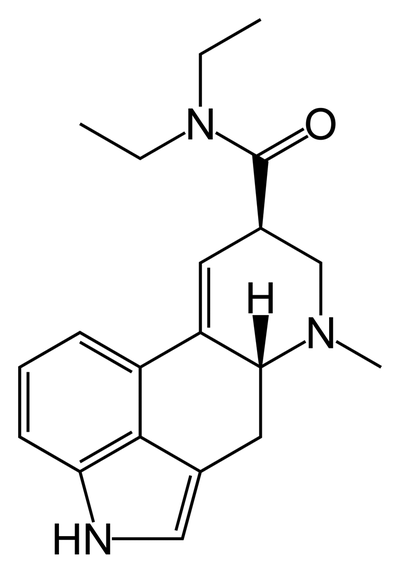LSD found successful in treating alcoholics
March 9, 2012
Teri Krebs and Pål-Ørjan Johansen, researchers at the Norwegian University of Science and Technology (NTNU), have taken a closer look at experiments in the 1950s, ’60s and ’70s, treating alcoholics with LSD.
The researchers found six different studies of LSD and alcoholism that were scientifically sound, involving a total of 536 people. They showed that a single dose of LSD, provided for treatment purposes, helped heavy alcoholics and made it less likely that they would relapse.
“There has long been a need for better treatments for addiction. We think it is time to look at the use of psychedelics in treating various conditions,” the researchers say.
LSD patients were less likely to relapse into problematic alcohol use and had higher levels of total abstinence. In some studies their relatives also reported the same findings. Many of the patients said they had gained a new appreciation for their alcohol problem and new motivation to address it.
These patients also reported greater self-acceptance and openness, as well as greater faith in their ability to deal with future problems.
“We do not yet fully know why LSD works this way,” the researchers admit. “But we know that the substance is non-toxic and that it is not addictive. We also know that it has a striking effect on the imagination, perception and memories.”
The researchers explain that LSD interacts with a specific type of serotonin receptor in the brain. “LSD may stimulate the formation of new connections and patterns, and generally seems to open an individual to an awareness of new perspectives and opportunities for action,” they say.
By 1971 LSD had been banned for non-medical use, and although the drug was and is still permitted as an experimental medical treatment, it became increasingly difficult to conduct clinical trials. Despite the promising studies, LSD was claimed to have no demonstrated medical use. There may be several reasons for this, the researchers explained.
“The earliest studies reported promising results but also had methodological problems. Many scientists expected unrealistically good results from a single dose, and tended to ignore effects that lasted less than a year. Importantly, many of the individual studies did not have enough patients to reach a conclusion by themselves.”
“But when we combine studies that had sound methodology, the results are unambiguous. We can therefore safely conclude that a single dose of LSD had a positive treatment effect that lasted at least six months,” Krebs and Johansen said.
The improvement was greatest during the first few months of treatment. As the months passed, the effect gradually decreased.
“It is unusual for psychiatric drugs to have an effect that lasts for several months after a single dose. We now better understand that alcoholism is a chronic, relapsing disorder that typically requires ongoing treatment. The next step should be to periodically provide additional doses of LSD in combination with modern evidence-based treatment programs,” the researchers conclude.
Ref.: Teri S. Krebs and Pål-Ørjan Johansen, Lysergic acid diethylamide (LSD) for alcoholism: a meta-analysis of randomized controlled trials, Journal of Psychopharmacology, 2012; [DOI:10.1177/0269881112439253] (in press)
